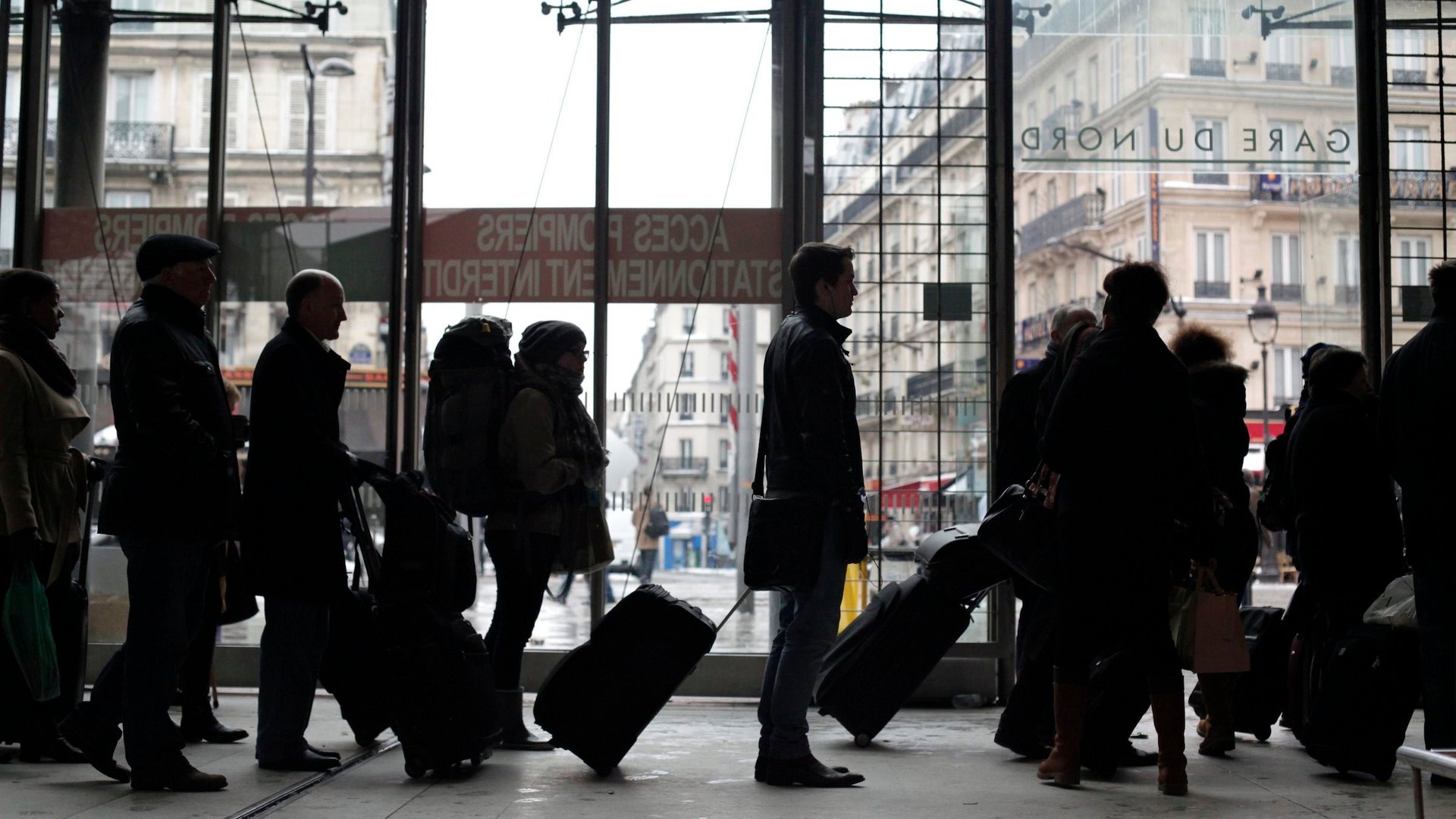A strong UK economy is pushing more passengers out, and pulling more freight in, through the Channel Tunnel
The numbers: Chugging ahead. Eurotunnel, the company that operates the 31.4-mile (50.5 km) undersea Channel Tunnel linking the UK and France, reported a 16% jump in revenues for the third quarter (pdf). Its passenger and freight segments both contributed to the growth. Eurotunnel’s shares are up nearly 25% so far this year.



The numbers: Chugging ahead. Eurotunnel, the company that operates the 31.4-mile (50.5 km) undersea Channel Tunnel linking the UK and France, reported a 16% jump in revenues for the third quarter (pdf). Its passenger and freight segments both contributed to the growth. Eurotunnel’s shares are up nearly 25% so far this year.
The takeaway: Freight traffic, most of it bound for Britain, was particularly strong in the third quarter, further evidence that Britain’s economy is gaining momentum. Eurotunnel boss Jacques Gounon described the growth in freight as “widely spread between fresh goods and industrial spare parts—it appears that all the segments are involved.” Holiday-bound Brits also pushed passenger numbers up, with the Eurostar service filling 5% more seats than last year. The tunnel also set a new one-day record for car transport, with nearly 16,000 vehicles hitching a ride from Dover to Calais on a single day in mid-August.
What’s interesting: From the delays and cost overruns during the tunnel’s construction to the operator’s brush with bankruptcy in 2006, Eurotunnel has been no stranger to controversy during its 20-year history. The company is currently appealing a decision by British antitrust authorities to shut down its ferry service, which it launched last year to help offset a fall in truck traffic via the more expensive undersea route. Meanwhile, the European Commission is threatening legal action against Britain and France if they don’t force Eurotunnel to lower the fees it charges trains to use the undersea passage. For overseeing what is essentially a hole in the ground, business for Eurotunnel is rarely straightforward.